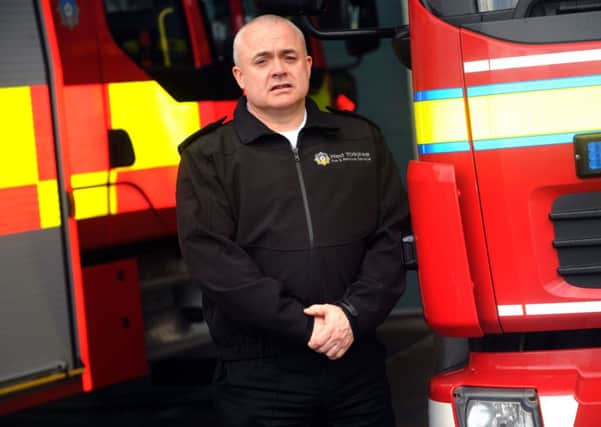31 calls for fire brigade on day two of strike


Yesterday (Tuesday) was the second day of the eight-day FBU strike and West Yorkshire Fire Service said it passed without major incident.
Two periods of Fire Brigades Union (FBU) industrial action took place between 6am and 8am and between 5pm and 7pm.
Advertisement
Hide AdAdvertisement
Hide AdIn total the service received 31 calls during the strike periods and attended 16 incidents. Some calls were of a minor nature and did not require attendance. No emergencies went unattended.
Assistant Chief Fire Officer Dave Walton said: “The second day of the current series of strikes saw a very quiet start to the day.
“The early evening period, however, was busier and contingency crews were required at a range of emergency incidents.
“This serves as a reminder of the need for our contingency crews to remain at a high state of readiness and for the public to take extra care in their day to day activities. Our resources are limited and must be preserved for the protection of life, property and the environment.”
Advertisement
Hide AdAdvertisement
Hide AdBetween 5pm and 7pm the service received 25 calls and attended 12 incidents.
Incidents of note were:
At 5.32pm there were reports of smell of burning at Leeds General Infirmary, which turned out to be false alarm.
At 5.41pm there was a large good vehicle on fire on the M62 westbound between junctions 23 and 22. It was caused by an overheated wheel.
At 6.32pm there was a derelict building fire on All Alone Road, Idle, Bradford.
Advertisement
Hide AdAdvertisement
Hide AdAt 6.33pm there was a two-vehicle crash on Park Lodge Lane, Eastmoor, Wakefield. Two men were trapped and extricated by contingency crews.
The crew also attended six fires in the open and three automatic fire alarms throughout the period.
During the earlier strike, between 6am and 8am, the service received six calls and attended four incidents which were all automatic fire alarms.
The contingency arrangements allowed for around 23 fire engines to be available, whereas the full fleet is 54.